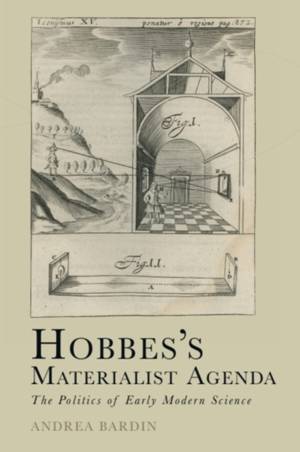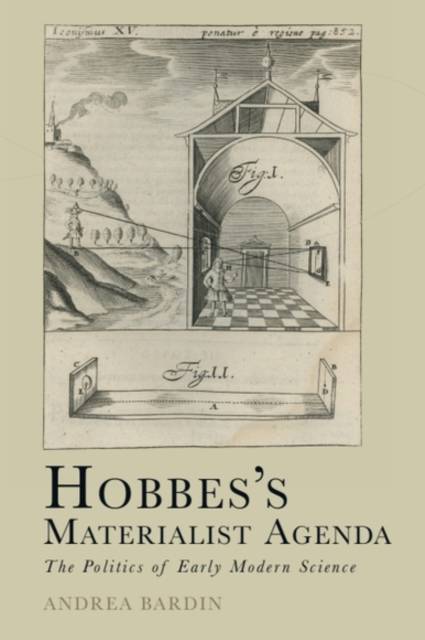
Bedankt voor het vertrouwen het afgelopen jaar! Om jou te bedanken bieden we GRATIS verzending (in België) aan op alles gedurende de hele maand januari.
- Afhalen na 1 uur in een winkel met voorraad
- In januari gratis thuislevering in België
- Ruim aanbod met 7 miljoen producten
Bedankt voor het vertrouwen het afgelopen jaar! Om jou te bedanken bieden we GRATIS verzending (in België) aan op alles gedurende de hele maand januari.
- Afhalen na 1 uur in een winkel met voorraad
- In januari gratis thuislevering in België
- Ruim aanbod met 7 miljoen producten
Zoeken
€ 133,45
+ 266 punten
Omschrijving
In this major contribution to our understanding of Hobbes's political thought, Andrea Bardin contends that it should be analysed in relation to the 'materialist agenda' Hobbes was pursuing when confronting Descartes's project. Bardin pinpoints the changes in Hobbes's political thought to the intellectual context in which he elaborated his materialist ontology and epistemology. He investigates the classical sources that initially shaped Hobbes's political thinking, including Thucydides and Aristotle, as well as the broad materialist agenda that Hobbes drew from Bacon and elaborated in opposition to Descartes. He studies Hobbes's exchanges with his contemporary interlocutors in the Mersenne circle, including Descartes and Gassendi, with whom he discussed first philosophy and natural philosophy. In this way, Bardin vindicates materialist critiques of the idealist foundations of early modern mechanical philosophy.
Specificaties
Betrokkenen
- Auteur(s):
- Uitgeverij:
Inhoud
- Aantal bladzijden:
- 224
- Taal:
- Engels
- Reeks:
Eigenschappen
- Productcode (EAN):
- 9781399540872
- Verschijningsdatum:
- 31/01/2026
- Uitvoering:
- Hardcover
- Formaat:
- Genaaid
- Afmetingen:
- 156 mm x 234 mm

Alleen bij Standaard Boekhandel
+ 266 punten op je klantenkaart van Standaard Boekhandel
Beoordelingen
We publiceren alleen reviews die voldoen aan de voorwaarden voor reviews. Bekijk onze voorwaarden voor reviews.









